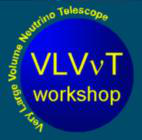Orateur
Dr
S. Martin Taylor
(Ocean Networks Canada)
Description
The health of the world’s oceans and their impact on global environmental and climate change make the development of cabled observing systems vital and timely as a data source and archive of unparalleled importance for new discoveries. The VENUS and NEPTUNE Canada observatories are on the forefront of a new generation of ocean science and technology. Funding of over $100M, principally from the Governments of Canada and BC, for these two observatories supports integrated ocean systems science at a regional scale enabled by new developments in powered sub-sea cable technology and in cyber-infrastructure that streams continuous real-time data to Internet based web platforms. VENUS is a coastal observatory supporting two instrumented arrays in the Saanich Inlet, near Victoria, and in the Strait of Georgia, off Vancouver. NEPTUNE Canada is an 800km system on the Juan de Fuca Plate off the west coast of British Columbia, which will have five instrumented nodes in operation over the next 18 months. This paper will describe the development of these two observatories, the principal research themes, and the applications of the research to public policy, economic development, and public education and outreach. Both observatories depend on partnerships with universities, government agencies, private sector companies, and NGOs. International collaboration is central to the development of the research programs, including partnerships with initiatives in the EU, US, Japan, Taiwan and China.
Author
Dr
S. Martin Taylor
(Ocean Networks Canada)

